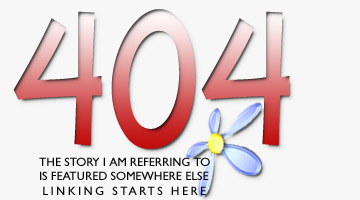When I got home from school today, I found a big package in the snailmailbox that came from San Francisco. Remarkably enough it had 7 shipping documents included for transport, but they were in fact 4 times the label document and 3 times the commercial invoice. American shipping policy is apparently one of many duplicates. A pretty impressive pack on first sight. The content was described as being 3 PC World magazines.
It took the snailman only five days to fly it across the ocean and deliver it to me. Very nice.
I’m writing this post to thank Andrew Brandt, the Senior Associate Editor, because he promised me in an email conversation that he’d send me some copies of the December issue in which Erik Larkin used some quotes from my blogpost concerning bundled software. I’m really very pleased PC World takes care of its sources so conscientious and I’m really² happy they keep their word and deliver on a promise.
Seriously, Andrew even marked the page that featured my quote with a paperclip and attached his nametag with a personal ‘Miel: Thanks ! – Andy’ note on the back. I must say that’s never been done to anyone I know of. What an effort, what a service… I feel so special :) – Hey guys, you’re welcome! If anything useful pops up to you in this blog, just let me know the same way you did while writing the ‘Software Surprises‘ article and you’ll get a yes for sure.
The label said there were 3 copies of PC World inside, and indeed that was true. Only thing is : two of the December issues were enclosed, but also the November issue, which then makes 3. Now I have stuff to read on the train to school for about two weeks I think, and that’s just great ! Thanks again !
Advice for other magazines/newspapers :
If you ever find content on a blog you can use in an article, please have the same courteous policy Andrew has. Contact the authors of that certain blogpost BEFORE you publish your content. Send an email to ask if it’s ok to republish bits or pieces, even if it’s only about two silly phrases of an entire article (which was the case for me).
I know I don’t make the difference in Erik Larkin’s article, but it’s just common sense to do it this way, when ‘the press’ meets ‘the blogosphere’. I don’t get paid for writing content. Journalists do. So making money (even indirectly) from content written by non-profit citizen journalists is really a kick in the dark and below the belt at the same time. Especially when you’re not linking back or giving credit. In this case, I’m not being linked to, but I am given credit and I got ‘paid’ by means of two copies of the issue that featured my words, plus I’ve been given a third issue of PC World which had totally nothing to do with the entire situation.
That’s good enough for me, and I bet it’ll be good enough for other bloggers too if the situation is similar.
That said, I have to add a little something Randy encountered with IDG before the entire buzz about my ‘Toolbar Needed To Run FlashPlayer‘ experience. He brought it up in an interview me and Jason Schramm did with him about blogiarism just recently :
"I avoid linking to any IDG Website as I caught them re-publishing one of my articles on their Website without asking permission or paying me. I emailed the authors listed on their Website and found a dozen more that were never contacted or paid. When I approached them, they told me I was privileged to get one of my articles on their Website. They ignored most of my emails and thru lawyers at me the rest of the time. They refused to compensate me and basically put me in a position where I would have to take legal action to get any compensation for myself or the other authors. I personally wasn’t interested in a lawsuit and abandoned the issue. But, I avoid giving them any Google juice."
I can only say that I feel bad for Randy for not having received the same treatment I’ve been given. Maybe it’s because of this PC World changed its policy towards the blogosphere? I don’t know, I can’t say. I only hope there are more editors like Andrew Brandt working at PC World now, because I for one can testify this man knows how to practice PR.
